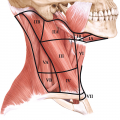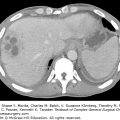Gastric cancer remains one of the most common malignancies and a high cause of mortality worldwide. In the United States and the Western world, the incidence of gastric cancer has been declining over the last decades. Moreover, a shift in location occurred in the last 20 years with a decline of tumors of the gastric body and antrum and an increase in tumors of the proximal stomach. In particular, the incidence of adenocarcinoma of the esophagogastric junction (EGJ) is increasing steadily and is among the fastest growing tumors in the United States. Despite recent advances in surgical technique and multimodality treatment, gastric carcinoma still has a high mortality. Unfortunately, at time of diagnosis about 50% of patients already present with systemic disease and are not amenable to surgical resection. Survival after resection historically resulted in very poor results. These poor results led to efforts to improve the outcome of these patients with the addition of systemic adjuvant or neoadjuvant therapy.
However, despite multiple trials there still is no consensus as to the best approach for these patients and many controversial issues remain, especially for tumors of the esophagogastric junction. The focus of this chapter is on the multimodality treatment options for gastric cancer but includes aspects relevant to cancer of the esophagogastric junction.
Resection remains the mainstay of curative gastric cancer treatment today. For early intramucosal lesions (T1a), endoscopic mucosal resection (EMR) can be performed with excellent outcomes and low morbidity and mortality. For deeper T1b lesions, EMR remains controversial as sm3 lesions have reported lymph node disease rates of up to 30%,1 and the general recommendation for these patients is to undergo formal gastrectomy if possible. For more advanced tumors, stage II and III, the surgical approach and the extent of resection is dependent on the tumor location and the stage of the tumor. Specific operative approaches have been discussed in detail in previous chapters. Late stage tumors are not amenable to gastrectomy except for rare palliation needs and are primarily treated with non-curative intent systemic therapies or radiation as preferred modality for specific palliative needs of local tumor-derived symptoms.
Because of outcomes with historically limited success with resection alone, different treatment modalities have been tested and so far several perioperative treatment options have been shown to improve overall survival in gastric and esophageal cancer. Most of these trials compared either postoperative (adjuvant) or preoperative (neoadjuvant) treatment to surgical resection alone; few have combined preoperative and postoperative therapy. Some of the well-known landmark trials are summarized in Table 100-1 and are discussed in more detail below. However, most of these trials intermixed esophageal and gastric cancers to a different extent. Purely gastric cancer trials are rare, and the role of the increasingly frequent adenocarcinoma of the esophagogastric junction remains controversial to the point of some authors even suggesting it to be a separate entity. Furthermore, targeted therapies have shown promising results in metastatic disease and should be further evaluated in the treatment of resectable tumors as well, although there is no proven benefit in this setting as to date. Because of these different options, all patients with gastric and esophageal cancer should be presented at a multidisciplinary tumor conference prior to initiation of any therapy.
Selected Randomized Controlled Trials of Multimodality Therapies for Resected Gastric and EGJ Cancera
| Trial | Year | Predominant Cancer Site | Patient n | Treatment | Outcomes | HR | p Value |
|---|---|---|---|---|---|---|---|
| Italian5 | 2001 | gastric | 137 | postop. Epi-LV-5FU vs. S |
| 0.51b | 0.01 |
| INT-011616 | 2001 | gastric | 556 | postop. FL-RT vs. S |
| 0.65 | 0.005 |
| MAGIC9 | 2006 | gastric | 503 | periop. ECF vs. S |
| 0.75 | 0.009 |
| ACTS-GC6 | 2007 | gastric | 1059 | postop. S-1 vs. S |
| 0.68 | 0.002 |
| ARTIST18 | 2011 | gastric | 458 | postop. XP-RT vs. XP |
| 0.69 | 0.086 |
| ACCORD 0710 | 2011 | gastro-esophageal | 224 | periop. CF vs. S |
| 0.69 | 0.02 |
| CLASSIC8 | 2012 | gastric | 1035 | postop. CapOx vs. S |
| 0.56 | <0.0001 |
The use of chemotherapy before surgical resection has several theoretical benefits. There is a potential downstaging of the tumor, thus leading to an increased R0 resection rate, as well as improving dysphagia. Also, occult micro-metastasis could be treated earlier.2 Since as many as 45% of patients are not able to tolerate systemic therapy after resection due to postoperative complications, administration of chemotherapy prior to surgical resection could, therefore, reduce the risk possibility of not receiving adequate systemic treatment. At least two large trials examined the preoperative chemotherapy approach.
The European Organisation for Research and Treatment of Cancer (EORTC) Randomized Trial 409543 compared neoadjuvant chemotherapy with surgery alone for locally advanced cancer of the stomach and cardia (Siewert II and III). Unfortunately, this trial was stopped for poor accrual after only 144 of the required 360 patients were enrolled. The chemotherapy regimen consisted of two 48-day cycles of cisplatin (50 mg/m2 D1, 15, and 29), followed by folinic acid (500 mg/m2) and fluorouracil (2,000 mg/m2 continuous over 24h D1, 8, 15, 22, 29, and 36). For patients undergoing neoadjuvant therapy, resection was performed within 4 weeks of the last day of chemotherapy and consisted of subtotal or total gastrectomy with D1 or D2 lymphadenectomy (D2 > 92% in both arms). Fifty-three percent of the patients had tumors of the upper third of the stomach or the cardia, with 54% having a tumor of the nonintestinal subtype. Of the 69 patients who underwent neoadjuvant treatment, 7.1% had a complete pathological response. The R0 resection rate was 81.9% in the neoadjuvant chemotherapy group and 66.7% in the surgery alone group (p=0.036). The estimated median overall survival time was 64.62 months (95% CI, 42.41 to NA) in the neoadjuvant treatment arm and 52.53 months (95% CI, 31.70 to NA) in the surgery alone arm (HR 0.84: 95%CI, 0.52 to 1.35; p=0.466). Two-year-survival rates were 72.7% and 69.9%, respectively. Due to the early termination because of poor accrual, this trial did not have the statistical power to demonstrate a potential benefit of a neoadjuvant therapy approach for these patients.
However, in a 2002 Lancet publication, the British Medical Research Council Oesophageal Cancer Working Party reported the results on their randomized controlled trial4 of previously untreated patients with resectable esophageal cancer who underwent randomization between neoadjuvant chemotherapy and resection alone. In this trial, overall survival was improved in the neoadjuvant treatment group compared to the resection alone group (p=0.004; hazard ratio 0.79; 95% CI 0.67–0.93).
To improve survival after surgical resection by potentially decreasing distant failure rates, adjuvant therapy has been evaluated in different trials mainly in Asia. This approach became a standard therapy in Asia after showing a survival benefit in these patient populations in two large trials. Although the regimens tested in these trials remain unproven in “Western” patient cohorts, these trials certainly have an impact on additional therapeutic considerations for patients with resected yet high-risk gastric cancer in Western countries.
In “Western” patient cohorts, an Italian study5 randomized 137 patients with nodal positive gastric adenocarcinoma after curative resection to either receiving adjuvant epidoxorubicin (75 mg/m2 D1), leucovorin (200 mg/m2 D1-3) and 5-fluorouracil (450 mg/m2 D1-3) every 3 weeks for 7 months, or observation alone. Median overall survival was 18 months for the controls and 31 months for the patients treated with adjuvant chemotherapy (p < 0.01). Five-year overall survival rate was 30% for the patients receiving adjuvant chemotherapy and 13% for the patients undergoing resection alone.
The following trials were performed in “Asian” patient cohorts: In the Adjuvant Chemotherapy Trial of TS-1 for Gastric Cancer (ACTS-GC),6 1059 patients in Japan with stage II or III gastric cancer who underwent gastrectomy with extended (D2) lymph-node dissection were randomly assigned to undergo surgery with adjuvant chemotherapy or surgery alone. Patients assigned to the chemotherapy group were administered S-1, an oral fluoropyrimidine available in Japan, within 6 weeks of the operation for the duration of 1 year. Ninety percent of patients in this trial had nodal positive disease. The trial was stopped on the recommendation of the data and safety monitoring committee at the first interim analysis because the S-1 group had a significantly higher overall survival rate than the surgery group (P = 0.002). Analysis of the follow-up data demonstrated a 3-year overall survival rate of 80.1% in the S-1 group and 70.1% in the surgery group (hazard ratio 0.68; 95% confidence interval, 0.52 to 0.87; P = 0.003). In the recently published update on 5-year outcome,7 postoperative adjuvant therapy with S-1 was confirmed to improve the overall survival, as well as the disease free survival. Overall survival rate at 5 years was 71.7% in the S-1 group and 61.1% in the surgery group (hazard ratio 0.669; 95% CI, 0.540 to 0.828). Disease free survival rate at 5 years was 65.4% in the S-1 group and 53.1% in the gastrectomy only group (HR 0.653; 95% CI, 0.537 to 0.793). Therefore, the authors concluded that adjuvant chemotherapy with S-1 is effective for the treatment of locally advanced gastric cancer in Asian patients.
The capecitabine and oxaliplatin adjuvant study in stomach cancer (CLASSIC)8 study in South Korea, China and Taiwan randomized 1035 patients with stage II-IIIB gastric cancer after curative D2 gastrectomy to either adjuvant chemotherapy with capecitabine (1000 mg/m2 twice daily D1-14) and oxaliplatin (130 mg/m2 D1) for 8 cycles with a total duration of 6 month or surgery alone. This study was also stopped after a recommendation from the data monitoring committee. Three-year disease-free survival was 74% (95% CI 69–79) in the chemotherapy group and 59% (53–64) in the surgery only group (hazard ratio 0.56, 95% CI 0.44–0.72; p<0·0001). Therefore, the authors concluded that adjuvant treatment with capecitabine plus oxaliplatin after curative D2 gastrectomy should be considered for patients with operable gastric cancer.
Stay updated, free articles. Join our Telegram channel

Full access? Get Clinical Tree






